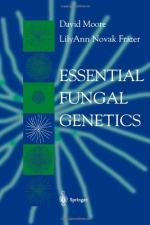|
This section contains 138 words (approx. 1 page at 300 words per page) |
Fungi are one of the five Phyla of organisms. Fungi are broadly characterized by cells that possess nuclei and rigid cell walls but lack chlorophyll. Fungal spores germinate and grow slender tube-like structures called hyphae, separated by cell walls called septae. The vegetative biomass of most fungi in nature consists of masses of hyphae, or mycelia. Most species of fungi inhabit soil, where they are active in the decomposition of organic matter. The biologically most complex fungi periodically form spore-producing fruiting structures, known as mushrooms. Some fungi occur in close associations, known as mycorrhizae, with the roots of many species of vascular plants. The plant benefits mostly through an enhancement of nutrient uptake, while the fungus benefits through access to metabolites. Certain fungi are also partners in the symbioses with algae known as lichens.
See Also
|
This section contains 138 words (approx. 1 page at 300 words per page) |


